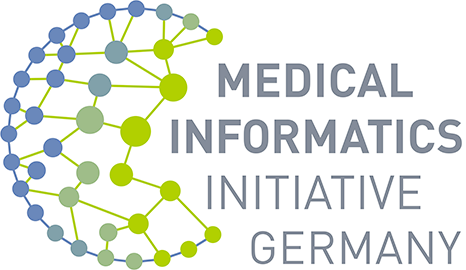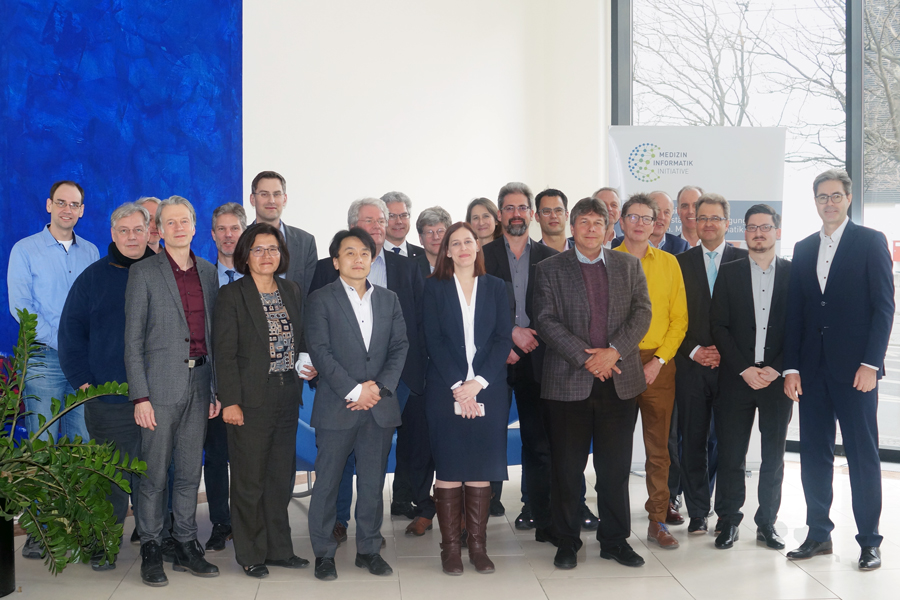26 February 2019. Members of the German Medical Informatics Initiative’s (MII) Scientific Advisory Board (SAB) held their first meeting in Berlin. The board assists members of the MII’s National Steering Committee (NSC) with assessing and addressing issues that have an impact across the entire initiative. These include management of networks and questions of governance, plus regulatory and political concerns, and questions relating to international collaborative research.
On behalf of the German Federal Ministry of Education and Research (BMBF) and its New Methods and Technologies in the Life Sciences department, Dr Jaane Rauschenberg welcomed the board’s international experts to the Berlin-based office of TMF e.V. (Technology, Methods, and Infrastructure for Networked Medical Research). Representatives from the MII consortia and accompanying project then summarised the latest progress made in the initiative. Key points included the implementation of the MII’s broad consent approach as a basis for data usage, and data-sharing processes and infrastructures across participating MII sites.
The SAB members welcomed the federal government’s choice of funding mechanism, and praised the pivotal role of medical research in the digital transformation of healthcare in Germany. Moreover, the MII’s broad consent approach sets a positive example for the international community with regard to declaration of consent. Suggestions from SAB members included increasing incentives for data sharing. They also emphasised the importance of consistent semantics to ensure interoperability, plus concrete use of internationally standardised data-exchange models within the MII.


